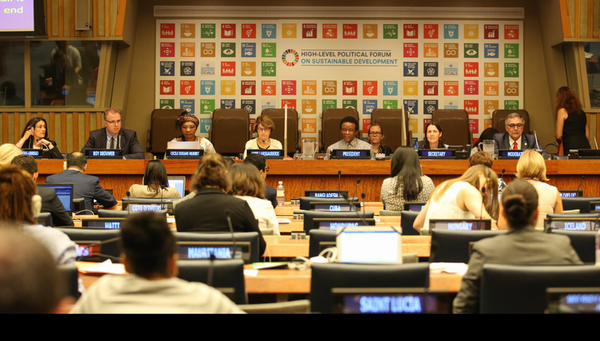News Detail
Participation in United Nations High-Level Political Forum on Sustainable Development
July 26, 2018 |
The HLPF is the central UN platform overseeing the follow-up and review of the 2030 Agenda for Sustainable Development and its 17 Sustainable Development Goals (SDGs) since those were adopted by the Heads of State and Governments of all UN Member States in September 2015. This year’s theme was “transformation towards sustainable and resilient societies.”
Roy Brouwer participated in the review of the implementation of SDG 15 — protect, restore and promote sustainable use of terrestrial ecosystems, sustainably manage forests, combat desertification, and halt and reverse land degradation and halt biodiversity loss. “The role of water in ecosystem functioning, including the preservation of biodiversity, is a focal point in Eawag’s research agenda” said Brouwer. Together with former Eawag post-doc Paola Ovando he investigated, among others, the role of forest management in watersheds around the world. During the panel discussion Brouwer presented his research on payments for watershed services as a way to achieving SDG 15.
“Payments for watershed services involve downstream water users compensating upstream landowners as a way to encourage sustainable upstream land and forest management. Creating such a market-based system requires a willingness among downstream water users to pay, as well as a willingness of upstream landowners to accept payment,” said Brouwer, adding that “although the empirical evidence base is growing, there is still little data about the environmental impacts of current payment for ecosystem services schemes”.
During the discussion, more than 50 speakers, including Doris Leuthard from the Swiss Federal Council, took the floor to set out the various ways their Governments and organizations are striving to protect and improve biodiversity.

